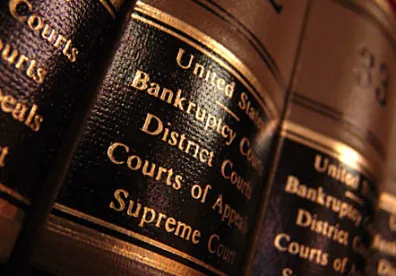In a recent decision pitting the Bankruptcy Code against the Federal Arbitration Act (FAA), the U.S. Court of Appeals for the Second Circuit held that a creditor could not compel arbitration of a debtor's class action claims because the dispute implicated a core bankruptcy proceeding. However, the court refused to consider important arguments concerning the congressional intent underlying the FAA because they were raised for the first time on appeal.
In Anderson v. Credit One Bank, N.A., the bank charged off the plaintiff's credit card debt, sold the debt to a third-party buyer, and reported the change in the debt's status to credit-reporting agencies. The plaintiff filed a voluntary Chapter 7 bankruptcy petition, and the bankruptcy court subsequently discharged the debt. The court entered an order that released the plaintiff from all dischargeable debts and closed his Chapter 7 case. The plaintiff's claim arose from the bank's subsequent refusal to remove the charge‐off notation from his credit reports.
The bankruptcy court permitted the plaintiff to reopen his bankruptcy proceeding to file a putative class action complaint against the bank alleging that the refusal to change his credit report was an attempt to coerce him into paying a debt that had already been discharged through bankruptcy—a violation of the bankruptcy court's discharge injunction. The plaintiff alleged that debt marked as "charged off" rather than "discharged" is more valuable to third‐party debt buyers, who believe debtors will feel obligated to pay the debt in order to clear this negative item from their credit reports.
The bank moved to compel arbitration pursuant to an arbitration clause in the plaintiff's cardholder agreement. The bankruptcy court held that plaintiff's claim was non‐arbitrable because it was a core bankruptcy proceeding that went to the heart of the "fresh start" guaranteed to debtors under the Bankruptcy Code. That ruling was affirmed by the district court, and, ultimately, the Second Circuit.
The Second Circuit explained that if a bankruptcy proceeding is "non-core," bankruptcy courts generally stay their proceedings in favor of arbitration. If the matter involves a "core" proceeding, the bankruptcy court engages in a particularized inquiry, and if it determines that arbitration would present a "severe conflict" with the purposes of the Bankruptcy Code, it has the discretion to override the FAA's general policy favoring enforcement of arbitration agreements. The court noted that the FAA, like any federal statute, can be "overridden by a contrary congressional demand."
In this case, it was undisputed that a core proceeding was involved. Therefore, the court emphasized that its "sole inquiry" was "whether arbitrating the matter would present an inherent conflict with the goals of the Bankruptcy Code." The court found the existence of an inherent conflict because "[t]he successful discharge of debt is not merely important to the Bankruptcy Code, it is its principal goal. An attempt to coerce debtors to pay a discharged debt is thus an attempt to undo the effect of the discharge order and the bankruptcy proceeding itself ... [T]he issue strikes at the heart of the bankruptcy court’s unique powers to enforce its own orders..."
The bank argued that nothing in the text or legislative history of the Bankruptcy Code evidenced a congressional intent to except discharge injunction claims from arbitration. According to the bank, the Bankruptcy Code is silent on the issue of arbitration, and nothing in the relevant Code provisions suggests intent to preclude arbitration. Moreover, the bank argued, to the extent the statutory text provides any indication of congressional intent on this question, it demonstrates that Congress did not intend for discharge injunction claims to be litigated exclusively in the bankruptcy court and, therefore, excepted from the FAA. However, the Second Circuit declined to consider the argument on the ground that it had not been presented to the district court and was being raised for the first time on appeal.
The Second Circuit's refusal to consider the bank's argument is unfortunate, since consideration of the Bankruptcy Code's language and legislative history could have shed further light on this important issue and, arguably, produced a different result. In CompuCredit Corp. v. Greenwood, the U.S. Supreme Court held that claims brought under the Credit Repair Organizations Act were arbitrable because where Congress has precluded arbitration of statutory claims, it has done so with clarity," and neither the text nor legislative history of that statute evinced congressional intent to override the FAA. The Court is also poised to decide whether the FAA trumps the National Labor Relations Act so as to allow class action waivers in employment agreements. It may be that the final chapter has not been written on the bankruptcy issue presented in Anderson if and when a case preserving the CompuCredit argument arises.




 />i
/>i

